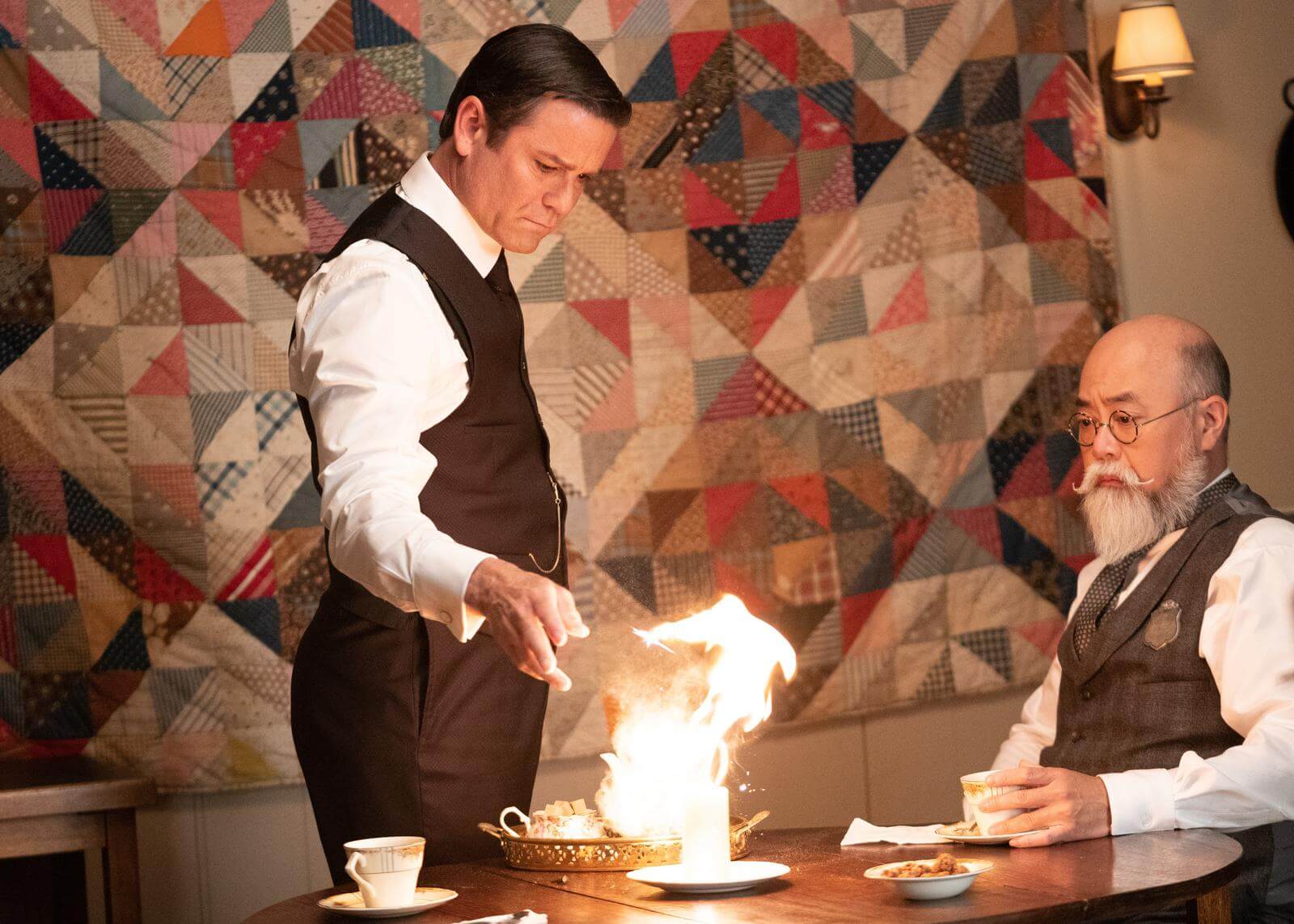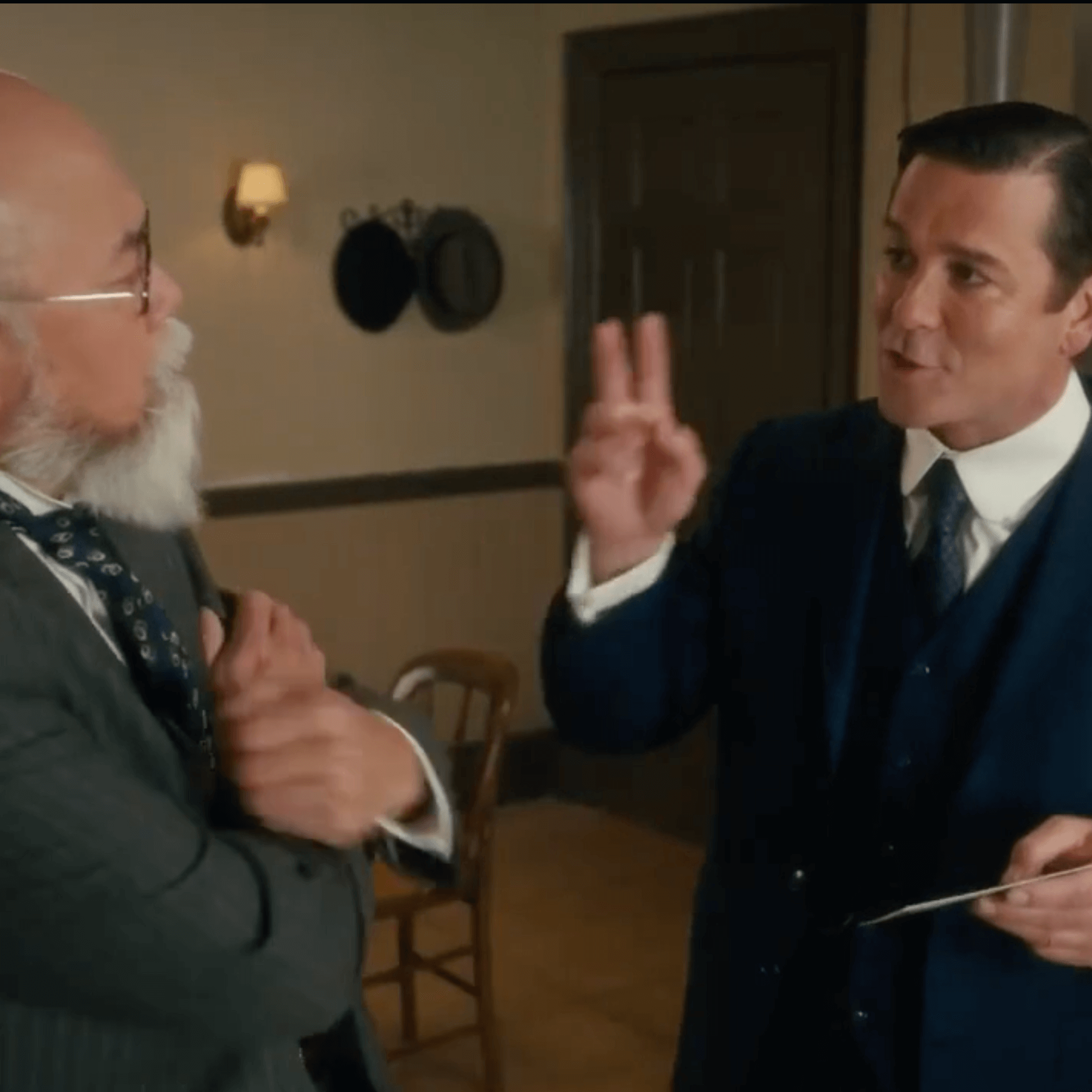S18 E2 – Only Murdoch in the Building
At the Heart of Murdoch Mysteries Lies Exceptional Storytelling

Spoiler Warning: Do not read on if you haven't watched this episode!!
What makes Murdoch Mysteries such an outstanding show? Is it its eclectic mix of genres? Its great set and prop design? The unforgettable characters and the actors who portray them? Its historical backdrop? The beautiful costumes? The score that enhances every scene? The answer is, of course, “all of the above”. All these aspects make Murdoch Mysteries what it is. However, at its core, it’s about great storytelling. To me, the writers are the primary architects of the show’s success and the real heroes of this success story.
When at its best, Murdoch Mysteries manages to deliver a full movie’s worth of entertainment in a 45-minute episode. This week’s episode, Only Murdoch in the Building, comes close, but ultimately isn’t as great as it could have been. Writer Simon McNabb delivers not one but two main storylines. The only problem I have with the episode is that it tries to cram too much in its 45 minutes, so there’s not enough time to properly flesh out either story.
In Story A, a lonely Detective Murdoch (Yannick Bisson), moves into a rooming house and becomes embroiled into a murder investigation before he even has a chance to open the door. Story B is the continuation of the previous season’s episode Smoke Gets in Your Eyes, with Chief Constable Brackenreid (Thomas Craig) and Crown Attorney Crabtree (Clare McConnell) trying to convict former City Councilman Vaughan (Mark Caven) for the killing of three people.
Crafting Authenticity
Like all writers on the team, Simon McNabb knows the characters and their voices inside and out. He skillfully weaves the arc of Murdoch’s personal circumstances into the weekly mystery while using both storylines to set up possible future developments. His craftsmanship is evident in scenes where he only needs a couple of words or a small gesture to advance the plot. For example, Louise Cherry (Bea Santos) badgering Effie for an interview gives her a reason to be in Effie’s office later on, while simultaneously underlining Miss Cherry’s professional character. And Tippy Longfellow (Rebecca Liddiard) hugging Murdoch leads to his discovery of the postcard (and to Jilliam fans likely screaming at their screens in dismay).
The writing team always takes its viewers seriously. Even when the episode itself is on the sillier side or when they take the most creative license (which is often the case in my favourite episodes), the writing is intelligent and furthers our suspension of disbelief. We viewers know it’s fictional, but we want to believe because the writers make it authentic in the context of the show’s unique voice. Within the Murdoch Mysteries universe, what we see feels just right. Murdoch throwing the quicklime into the candle not only looks good, but it’s also shorthand for telling us this is a scientifically-minded guy. And often it only takes one word to transport us into the period and that universe. Case in point: my new favourite word, persnickety, which may or may not describe Detective Murdoch’s character.
Two Good Stories
A lot is done right in Only Murdoch in the Building. Both storylines are interesting, engaging, and often funny. The characters, especially Murdoch and Choi (Paul Sun-Hyung Lee) are well written and even better acted. More on that in a bit, but first let me explain why what could have been two great stories ended up being two good stories.
The A/B format didn’t allow enough time to fully develop either storyline or flesh out the supporting characters. The people in the rooming house are creepily funny, and I would have liked to see more of them. Landlord Stanley Lester (Scott Anderson) gives off great gothic horror vibes but is not seen again after his introduction. The same goes for the lady in 1C, who is boiling cabbage and, apparently, dealing in marijuana. More time with the supporting cast would have been a lot of fun and made it a bit harder to guess whodunnit. Having said that, Tippy Longfellow was a wonderfully weird guest role, and I hope to see lots more of her. I don’t believe her obsession with Murdoch will abate anytime soon.
Lack of time for the B-story might make it a bit hard to follow why Vaughan is on trial and why Chief Constable Stewart would testify against him, especially if you haven’t seen or don’t recall Smoke Gets in Your Eyes. Why did Stewart commit suicide? What changed between the previous episode and this one? And what prompted the corruption of Crown Attorney Gordon? We’ve seen him before, and he always seemed to be on the side of the law. There’s been nothing to suggest he would take a bribe, so his corruption seems all too convenient.
Choi and Murdoch
So, while I have some problems with the supporting characters, I absolutely love the writing and acting of the main characters. Effie Crabtree is professional and self-assured, and Thomas Brackenreid is unafraid to pursue the truth. However, it’s Choi and Murdoch who, both as a duo and on their own, shine the brightest. Inspector Choi gets some backstory. Like Murdoch he prefers work to leisure, and while he’s a bachelor now, apparently he wasn’t always and he has lost someone. As a character, Choi is wonderful. He’s a good policeman, but also a good boss. I liked how he noticed Murdoch’s loneliness and dropped in on him to make sure he’s alright – another example of smart writing, as this makes for a natural way to insert him into the investigation. He’s also drily funny, gently ribbing Murdoch with great lines such as The Case Of The Man Who Moved out One Day Early, Your little magazine was wrong, and Detective, have you been spying on your neighbours?
While Inspector Choi is Murdoch Mysteries’ newest main character, Detective William Murdoch, of course, has been there from the start. The show’s writers and Yannick Bisson could almost be forgiven for going into autopilot mode, but fortunately that is not the case at all. Dr. Ogden’s prolonged absence has provided the writers with an opportunity to put Murdoch in new situations and Yannick Bisson with an opportunity to show off his acting chops. He’s using those eyelashes and eyebrows of his to great effect, blinking rapidly to show his bewilderment at Tippy Longfellow’s flirting and theories about the murder; appearing embarrassed when Choi questions him about his knowledge of postal details; and admitting that people have killed to get close to him. And finally, you need only look at the final scene, where he’s once again by himself, watching home movies of his daughter, Susannah, and observe the many emotions reflected on his expressive face, to realize that this is an actor at the top of his game.



